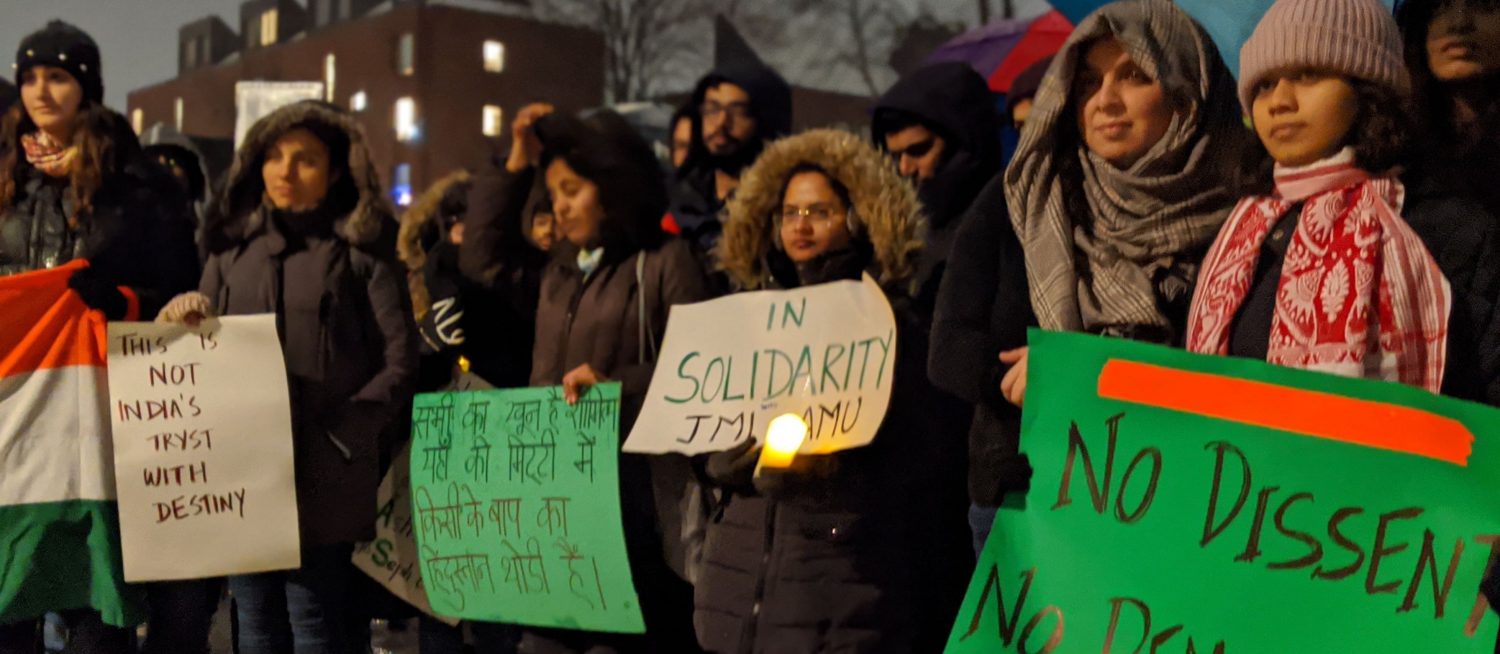“Eeshwar, Allah tero naam, sab ko sanmati de bhagwaan.”
I remember my grandfather reminding me of these unforgettable pearls of wisdom through my childhood.
One summer eight years ago, I was at my great-aunt’s house in Hyderabad during Eid. Our neighbours, a Muslim family, brought over kheer (rice pudding) to celebrate. Eager and ecstatic, I grabbed the pack of kheer with both hands as the neighbours smiled and wished me: “Eid mubarak, beti.”
As I served it and reached for the kheer with my spoon, my great aunt gripped my arm. “Yeh toh ganda hain, beti. Mein khudi tujhko banati hoon – this is dirty, I’ll make it for you.”
She dumped the kheer in the drain.
Crying, I leapt into my grandfather’s arms.
Laughing, he told me, “Your aunt doesn’t know that they’re all the same. Eeshwar, Allah tero naam!”
Where is my grandfather’s India now? The Citizenship Amendment Act, which was passed in both houses of parliament recently, has introduced religious incendiaries into a secular nationality. It is emblematic of deeply-rooted Islamophobic sentiments and a changing polity, promising refuge and home to religious and vulnerable minorities so long as they do not pray at a mosque.
Union home minister and BJP president Amit Shah has repeatedly promulgated, louder each time, that there is “no question of repeal [of the CAA]”.
But can he answer any of the questions I have? I’m Hindu, so he’ll surely want to address me, correct?
India was created by her founding mothers and fathers to remain a secular state. Gandhi himself said:
“The state would look after your secular welfare, health, communications, foreign relations, currency and so on, but not your or my religion. That is everybody’s personal concern!”
Yet, the current ruling party seems to be most fixated by religion, ostentatiously flirting with the prospects of a religious nation-state, a land gifted to those of some, but not of all faiths. Still, we have to learn to question – since when did India award shelter based on religion? From Abdul Kalam to Manmohan Singh, non-Hindus have been revered as great leaders. India has had Jewish military captains, Muslim presidents, Christian heads of intelligence. India has never been a Hindu state, nor a non-Muslim one.
So why now?
Also read: Ivy League South Asian Student Groups Slam CAA in Open Letter to US Congress
I am angry, upset and heartbroken. I am angry that my grandfather’s vision of an egalitarian India is fading away as he ages. I am upset at the hesitation my cousins have back home when inviting their Muslim friends to celebrate Holi – what will the neighbours say? I am angry about the casual slurs thrown around to disparage Muslims in India. I am heartbroken that Indian Muslims have to constantly pass a litmus test of loyalty. I am Hindu. My family is Hindu – but no more Indian than anyone of any other religion.
This is the time to fight for secular India. As the world’s largest democracy, India has come a long way since 1947 – India has even reached Mars, an indubitable step into the future for the nation. And somehow, at the same time, India has never courted a more backward ideology – one that is based on fear, discrimination and injustice.
Luckily, student voices continue to ring against the current dismal state of affairs. Several university campuses across the country – from Jamia Millia Islamia University, Jadavpur University, Aligarh Muslim University to various Indian Institute of Technology – have organised protests and demonstrations against the CAA.
Several colleges in the US have also come together to start a #HoliagainstHindutva campaign, demanding that protestors in India be treated humanely and a reconsideration of the CAA, National Register of Citizens, and other saffron-tinged campaigns being undertaken by the Narendra Modi regime.
The youth in India and among the diaspora are speaking loudly and clearly while fighting an honest battle for India’s future as a secular democracy.
It’s high time that we all rise up against intolerance. I want my grandfather’s vision of India back. I want to eat all the kheer made by all families of all religions. I want to tell my great aunt that it is not the kheer she should have dumped in the drain that day, but virulent sentiments and intolerance.
It’s time for us to share the kheer and stub irrational fears.
Vishwa Padigepati is a first-year student at Yale University and is from Los Angeles, California.
Featured image: Students protest at Harvard University/via Harvard students

